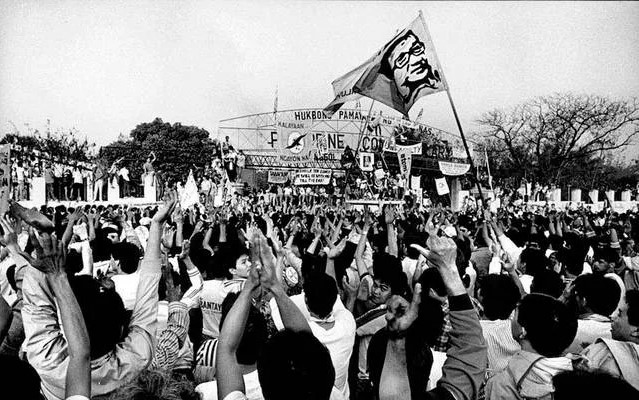Did EDSA fail? I am so over this question. And I am equally fed up with the self-flagellating answers most people, from either side of the divide, give.
Look. EDSA removed a corrupt despot, alright? The operative word there isn’t “corrupt.” It’s despot. EDSA removed a man from power who, for 20 years, believed only he could run the country and systematically gutted the institutions of government to make it so that no one could realistically harbor the same ambitions without his consent. It was this dysfunctional arrangement that EDSA successfully sought to dismantle – and it succeeded.
Be reminded that what followed after EDSA were four peaceful transitions of power via elections, and one peaceful Presidential transition based on the Constitutional order of succession. In all instances, with the possible exception of the election of now Member of the House of Representatives Gloria M. Arroyo, all these Presidential election results have been largely accepted as credible and valid. In contrast, before EDSA, the last credible elections were in 1969, when Ferdinand Marcos won the presidency with what is perhaps the last majority win in Philippine presidential elections history: more than 60% of the vote.
Think about that. Before EDSA, the Filipino people went 20 years without being able to choose their leaders. Where do people now get off saying EDSA failed? It didn’t, alright? But now the question is – and this is en vogue right now – did we fail EDSA?
This question appears to be rooted in the misconception that EDSA somehow offered the promise of a perfect society. Since our society is currently imperfect, so the argument goes, then we must have “failed EDSA.” That’s just ridiculous.
EDSA did not promise a perfect society, only a free one. And free we have remained – so far; free to work together for the better social order we dreamt of, but then again also at liberty to foul up that dream. EDSA gave us a shot at better leaders; an opportunity to be more discerning in the way we elect government officials, but that’s all it was: a chance.
Prior to EDSA, the opportunity to choose our own leaders practically did not exist. Thus, neither did the possibility of us being at fault for any failing of the government or of society as a whole. It was always going to be the despot’s fault, since he was the only one who had any real control. After EDSA, on the other hand, with no dictator to blame, the responsibility for a better tomorrow landed squarely on our collective shoulders. We have since found out that getting things right isn’t as easy as simply pointing out what’s being done wrong.
Democracy is not a gift; it is an outcome. It is the product of a people’s commitment to the preservation of certain values, like personal liberty and accountability, and principles like the rule of law and respect for the will of the majority, as expressed in free and fair elections. When the determination to preserve these values and principles wanes, so too will democracy waver.
Therefore, if EDSA’s legacy was the opportunity for us to develop a more perfect democracy, then it is only when we give up on the opportunity we have been provided that we can then be said to have truly failed EDSA. When. We. Give. Up. But the crowds last week told the story of a society that, while it may be divided, has certainly not given up. Far from being a futile exercise, the mass actions commemorating EDSA only proved that the true value of those commemorations, no matter how they are framed, is in how they remind us that there is much left to do and that it is only when we “move on” – as some have suggested – that we will have truly failed, not EDSA, but ourselves.

